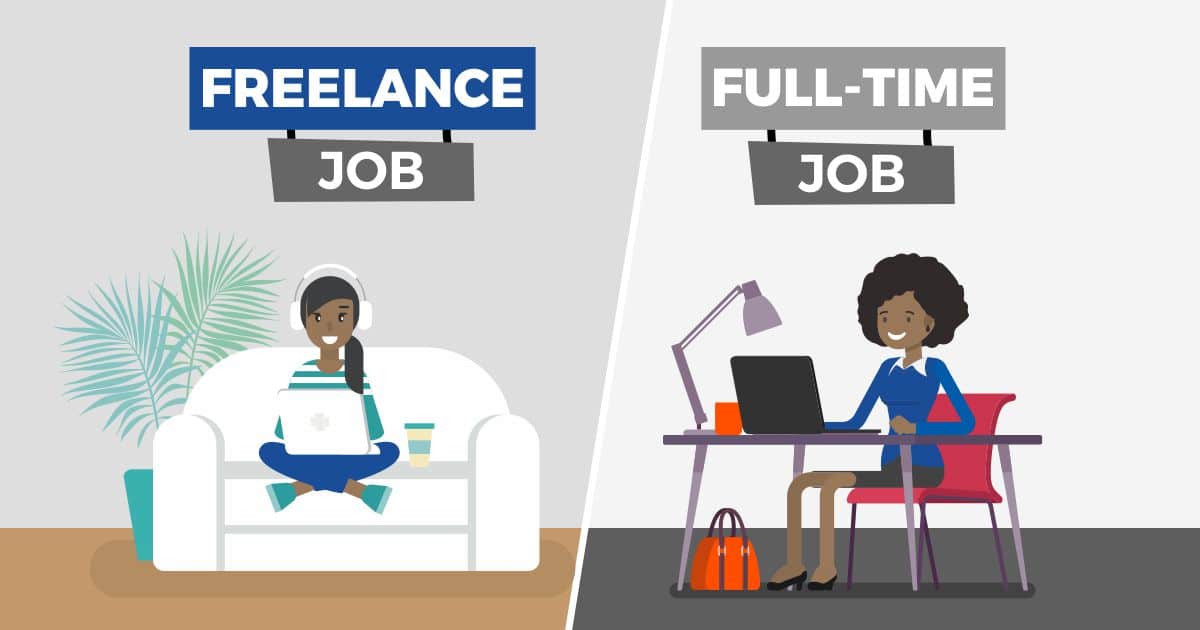In the ever-evolving landscape of employment, the choice between a 9-to-5 job and freelancing is a pivotal decision that demands careful consideration. This article aims to guide you through the maze of pros and cons associated with both, helping you make an informed choice that aligns with your career goals and lifestyle.
Decoding the 8-to-5 Job:
Securing a traditional job offers stability but comes with its set of challenges. The competitive job market, varying factors affecting candidate profiles, and the prolonged hiring process are just a few hurdles. Despite the perks like a fixed salary and the camaraderie of a team, the drawbacks include sacrificing personal and social life, limited task selection, and a rigid routine.
Freelancing Unveiled:
On the flip side, freelancing opens doors to flexibility and freedom. You get paid for the tasks you complete, from writing blogs to managing social profiles. However, it’s not a quick road to success. Building a reputation and securing projects can take time. For those with existing commitments, freelancing can serve as a lucrative side hustle to augment income.
Advantages and Disadvantages of Each:
8-to-5 Job: Advantages
- Stable Salary: A fixed income facilitates better financial planning.
- Team Environment: Working with a dedicated team offers support and shared responsibilities.
- Career Growth: The potential for promotions and salary increments contribute to personal and professional development.
8-to-5 Job: Disadvantages:
- Impact on Personal Life: Striking a balance between work and personal life can be challenging.
- Limited Task Choice: Tasks are assigned, limiting the freedom to choose projects.
- Routine Changes: Joining a company alters your daily routine.
Freelancing: Advantages:
- Location Independence: Work from anywhere with a laptop and internet connection.
- Flexible Hours: No fixed working hours, allowing you to work at your own pace.
- Income Potential: Potential for higher earnings, and you can plan your vacations without seeking permission.
Freelancing: Disadvantages:
- Income Stability: No guaranteed stable income; monthly earnings can fluctuate.
- No Benefits: Lack of benefits such as medical insurance, paid leave, or other perks.
- Work Isolation: Working alone can impact mental health, requiring conscious efforts to maintain a balance.
Myths Debunked:
- Freelancing as a Full-Time Job: Freelancing is not a traditional 9-to-5, but its demands can extend beyond regular hours.
- Freelancing Stability: Stability depends on diversifying work sources and managing client relationships.
- Freelancing Experience Counting: Indeed, freelancing experience is valuable and can be showcased to potential employers.
Tips for Work-Life Balance:
Regardless of the path chosen, maintaining a healthy work-life balance is crucial. Set boundaries, allocate time for personal activities, and communicate with family to ensure your choices align with your broader life goals. Consider your future aspirations and choose a path that leads you toward your dream life.
In this ever-evolving professional landscape, the decision between a traditional job and freelancing is not just about financial stability; it’s about aligning your career choices with the life you want to lead. Take the time to reflect on your priorities, weigh the pros and cons, and make a decision that propels you toward a fulfilling and balanced future.
Conclusion:
Ultimately, the choice between a job and freelancing hinges on personal preferences. If freedom and flexibility are paramount, freelancing might be the way to go. On the other hand, those seeking stability and career growth may find fulfillment in a traditional job.






